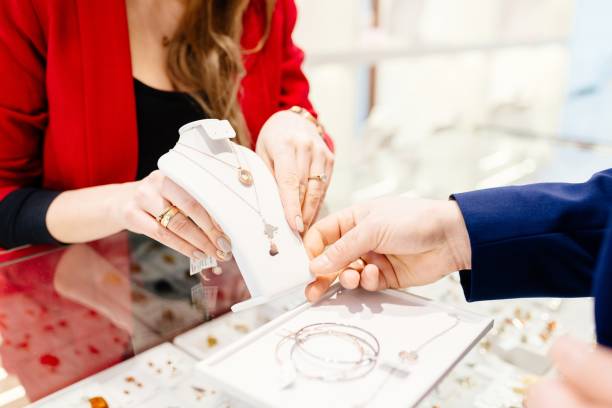Purchasing jewelry is both an investment and a personal indulgence, whether you’re buying a timeless piece for a special occasion or adding to your collection. To make a smart and informed purchase, it’s important to understand key aspects of jewelry, including quality, value, and authenticity. Here’s essential advice to guide you through the process and help you make well-informed decisions.
1. Understand Your Budget
Set a Budget:
- Determine Limits: Decide on a budget that aligns with your financial situation and what you’re comfortable spending.
- Include Additional Costs: Consider additional costs such as taxes, insurance, and potential maintenance when setting your budget.
Prioritize Spending:
- Focus on Key Features: Allocate your budget towards aspects that matter most to you, such as the quality of the gemstone or the craftsmanship of the piece.
2. Know Your Jewelry Types
Identify the Purpose:
- Occasion: Determine if the jewelry is for an engagement, wedding, anniversary, or everyday wear. Different occasions may require different types of pieces.
- Personal Style: Consider the recipient’s or your own style preferences, including metal type, gemstone choices, and overall design.
Types of Jewelry:
- Fine Jewelry: Includes high-quality metals and gemstones, often crafted with meticulous detail and often comes with certifications.
- Fashion Jewelry: More affordable, trendy pieces made from base metals and synthetic stones.
3. Evaluate Quality and Craftsmanship
Metal Quality:
- Check Purity: For gold, check the karat (e.g., 14K, 18K). For platinum and silver, ensure they are marked with the appropriate purity (e.g., 950 platinum, sterling silver).
- Assess Craftsmanship: Examine the finish, settings, and overall construction. High-quality jewelry should have smooth edges, secure settings, and well-defined details.
Gemstone Quality:
- Understand the 4 Cs: For diamonds, consider Cut, Color, Clarity, and Carat weight. Each affects the diamond’s brilliance and value.
- Check Certifications: Look for certifications from reputable gemological laboratories for diamonds and colored gemstones to ensure authenticity and quality.
4. Choose Reputable Jewelers
Research Jewelers:
- Read Reviews: Look for customer reviews and ratings online to gauge the reputation of the jeweler.
- Verify Credentials: Ensure the jeweler is a member of professional organizations such as the Gemological Institute of America (GIA) or the American Gem Society (AGS).
Ask Questions:
- Inquire About Policies: Understand the store’s return, exchange, and warranty policies before making a purchase.
- Request Documentation: Ask for certificates of authenticity, appraisals, and any relevant paperwork for the jewelry you’re considering.
5. Inspect the Jewelry
Check for Hallmarks:
- Verify Metal Purity: Look for hallmarks or stamps indicating the metal’s purity (e.g., 750 for 18K gold).
- Ensure Authenticity: Confirm that gemstones are genuine and not synthetic or treated in ways that may affect their value.
Try Before You Buy:
- Fit and Comfort: If possible, try on the jewelry to ensure it fits comfortably and suits your style.
- Assess Appearance: Check how the jewelry looks in different lighting and from various angles to appreciate its true beauty.
6. Consider Long-Term Value
Think About Longevity:
- Timeless Pieces: Invest in pieces with classic designs that will remain stylish and valuable over time.
- Maintenance Costs: Consider the cost of maintaining and cleaning the jewelry to keep it in good condition.
Resale Value:
- Research Market Trends: Understand the potential resale value of the jewelry, especially if it’s a significant investment. High-quality pieces from renowned brands or with rare gemstones often retain their value better.
7. Stay Informed About Trends
Follow Trends:
- Current Trends: Stay updated on current jewelry trends, but prioritize classic styles if you want a timeless investment.
- Future Trends: Consider how trends may evolve and how they might affect the long-term appeal of the piece you’re buying.
Explore Innovations:
- Modern Technologies: Be aware of new technologies and materials in the jewelry industry that could influence the quality and value of pieces.
Conclusion
Making a smart and informed jewelry purchase involves careful consideration of your budget, understanding the quality and craftsmanship of the jewelry, choosing reputable jewelers, and evaluating long-term value. By following these essential tips, you can ensure that your investment not only meets your expectations but also brings lasting enjoyment and value. Whether you’re buying a classic piece, a trendy accessory, or a significant investment, thorough research and thoughtful decision-making will guide you to a successful purchase.
